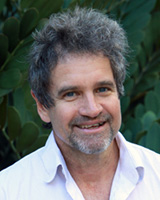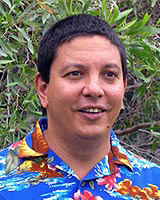Now published, see the full article 
Early Abstract:
Introduction: Previous studies have demonstrated early-career James Cook University (JCU) medical graduates are more likely to practise in regional, rural and remote areas than other Australian medical practitioners. This study investigates whether these non-metropolitan practice location outcomes continue into mid-career, and identifies the key underlying demographic, selection process, curriculum and postgraduate training factors associated with JCU graduates choosing to currently practise in regional, rural and remote areas of Australia.
Method: This study used the JCU medical school’s graduate tracking database to identify 2019 Australian practice location data for 931 JCU medical graduates across postgraduate years (PGY) 5-14. This data was sourced primarily from the Australian Health Practitioner Regulation Agency, and then categorized into Modified Monash Model (MMM) rurality classifications using the Department of Health’s ‘DoctorConnect’ website. For these mid-career (PGY5 to 14) cohorts, multinominal logistic regression was undertaken to identify specific demographic, selection process, undergraduate training and postgraduate career variables found to be associated with a 2019 practice location in a regional city (MMM2), large to small rural town (MMM3-5), or remote community (MMM6-7). Additional multinominal logistic regression analysis was then used to determine the key independent predictors of mid-career JCU medical graduates working in regional cities (MMM2), rural towns (MMM3-5), and remote communities (MMM6-7) in 2019.
Results: Around one-third of mid-career (PGY5 to 14) JCU medical graduates were working in regional cities during 2019, mostly in north Queensland, with a further 14% in rural towns and 3% in remote communities. These first 10 cohorts were undertaking careers in General Practice (n=300, 33%), as a Sub-Specialist (n=217, 24%), Rural Generalism (n=96, 11%), as a Generalist Specialist (n=87, 10%), or as a hospital non-specialist (n=200, 22%). Key statistically significant, independent predictors of JCU MBBS graduates practising in MMM3-5 and MMM6-7 locations in 2019 were, respectively: being awarded a rurally-bonded Australian government undergraduate ‘MRBS’ scholarship (p=0.004; POR=3.5, and p=0.017; POR=7.3); graduation from the JCU postgraduate general practice (GP) training program ‘JCU GP Training’ (p=0.002; POR=3.9, and p<0.001; POR=20.1); and internship training in a hospital located in a regional city (p=0.003; POR=2.4, and p=0.049; POR=4.3) or in a rural or remote town (p=0.033; POR=5.0, and p=0.002; POR=54.6). JCU MBBS graduates practising in MMM3-5 locations was also predicted by a rural hometown at application to the medical school (p=0.021; POR=2.5), and choosing a career in General Practice (p<0.001; POR=4.4) or in Rural Generalism (p<0.001, POR=26.4); while JCU MBBS graduates practising in MMM6-7 locations was also predicted by undertaking an extended 20- or 35-week undergraduate rural placement during Year 6 (p=0.014; POR=8.9).
Conclusions: The findings show positive outcomes from the first 10 cohorts of JCU medical graduates for regional Queensland cities, with a significantly higher proportion of mid-career graduates practising in regional areas of Queensland than the percentage of the overall Queensland population. The proportion of JCU medical graduates practising in smaller regional and remote towns is similar to the overall Queensland population. The recent establishment of the postgraduate JCU GP Training program for vocational generalist medicine training and the North Queensland Regional Training Hubs for building local specialist training pathways should further strengthen the retention and recruitment of JCU and other medical graduates across the northern Australia region.



